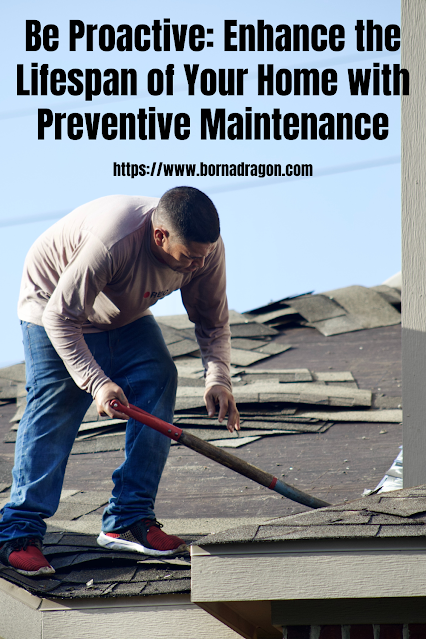When it comes to your home, proactive maintenance is key. Taking a preventative approach helps to identify and address issues before they become costly repairs or replacements down the line. Preventive maintenance strategies can safeguard your family from danger, lower energy expenses, increase comfort, prolong the life of building components, and lower repair costs. So how can you go about keeping your home on a proactive basis? Continue reading for some simple advice on how preventive maintenance can extend the life of your house.
Check Your HVAC System
The most important maintenance task for any homeowner is to make sure that their HVAC system is running efficiently. Regularly changing or cleaning air filters will help keep your system free of dust and debris, leading to improved air quality and better energy efficiency. Additionally, you should have your system inspected twice a year by an HVAC professional—once in the spring for cooling season and once in the fall for heating season. Regular maintenance can help save on repair costs and extend the life of the system.
Inspect Your Appliances
Many appliances have self-cleaning cycles that can be used regularly to keep them running smoothly. Refrigerators, dishwashers, ovens/ranges, washing machines, and dryers should all be inspected yearly for any signs of wear or damage that may need attention. Also check that filters are clean and seals are tight to ensure optimal performance.
Hire a Pro to Check Your Plumbing
It's a good idea to hire an experienced plumber every few years to inspect your home’s plumbing system. They can fix any leaks, check for corrosion, and help identify areas that need additional insulation to prevent future problems. This is also the ideal time to fix leaky faucet or toilets—not only are these minor repairs relatively simple, but they can save you money on your monthly water bill.
Inspect Your Roof
You should have your roof inspected by a professional at least once per year (more often if you live in an area with severe weather). They should look for signs of damage like missing shingles, rust spots, or gaps between flashing and the chimney. Also, check for any areas where water could be seeping in and make sure gutters are clean and free of debris.
Test Smoke & Carbon Monoxide Detectors
Last but not least, remember to frequently monitor your smoke and carbon monoxide detectors. The U.S. Fire Agency advises performing a monthly test and a yearly battery change. These detectors are crucial for defending your family from potentially dangerous fires caused by smoke or carbon monoxide.
The greatest approach to conserve money and make sure that your house is safe and comfortable for many years to come is to be proactive with preventive home maintenance. To help keep your house in top shape, you may perform simple tasks like changing air filters, inspecting appliances, hiring a professional to check the plumbing and roofing, and testing smoke/carbon monoxide alarms on a regular basis. By averting future costly repairs or replacements, taking these precautions today will pay off in the long run.









.jpg)
0 comments:
Post a Comment
Feel free to share your thoughts. However, kindly refrain from adding links in your comments because they will be marked as spam and filtered out. Thank you!